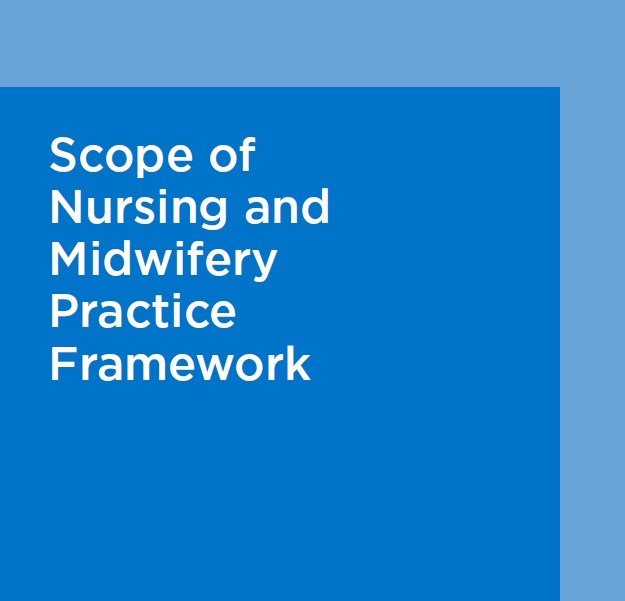Considerations in determining scope: delegation and supervision
Nurses and midwives working as members of a multi-disciplinary health care team may be required to delegate, supervise and educate students and regulated and unregulated health care workers (HCW) in providing safe patient care.
Delegation takes place where the nurse or midwife (the delegator) who has the authority for the delivery of healthcare, transfers to another person the responsibility of a particular role or activity that is normally within the scope of practice of the delegator. Effective delegation is a skill that “improves with education and practice”(Mueller and Vogelsmeier 2013:24). The delegator must be available to provide the necessary and appropriate level of supervision required by the delegate.
Supervision may be ‘direct’ or ‘indirect’:
Direct supervision means that the supervising nurse or midwife is actually present and works alongside the student or the regulated or unregulated HCW when they are undertaking a delegated role or activity.
Indirect supervision occurs when the nurse or midwife does not directly observe the student or the regulated or unregulated HCW undertaking a delegated role or activity.
Both direct and indirect supervision can include overseeing, direction, guidance, support and evaluation.
Nurses and midwives are professionally responsible and accountable for their practice, attitudes and actions, including inactions and omissions. The nurse or midwife who is delegating (the delegator) is accountable for the decision to delegate. This means that the delegator is accountable for ensuring that the delegated role or activity is appropriate to the level of competence of the student or the regulated or unregulated HCW to perform.
The delegator must also ensure that support and resources are available to the person to whom the role or activity has been delegated. The nurse, midwife, student or other HCW to whom the particular role or activity has been delegated is responsible for carrying out the delegated role or activity in an appropriate manner and is accountable for the appropriate performance of that role or activity.
Employers should support nurses and midwives in delegation and supervision of a student or a regulated or unregulated HCW by providing appropriate organisational policy and resources. The policy should establish:
- The education and training and ongoing competency assessment required for a student or a regulated or unregulated HCW regarding the scope and limitations of their responsibilities to safely perform the role or activity.
- The documentation and recording requirements for delegated activities.
- The mechanisms for monitoring, supervising and evaluating students or regulated or unregulated HCWs.
When delegating a particular role or activity, the nurse or midwife must take account of several principles. The individual nurse and midwife must:
- Ensure that the primary motivation for delegation is to serve the interests and needs of the patient.
- Assess the degree of risk involved in the delegation.
- Ensure that the delegation is appropriate with reference to the definitions and philosophies of nursing or midwifery.
- Take into account the level of experience, competence, role and scope of practice of the person taking on the delegated task.
- Not delegate to junior colleagues or other HCW tasks and responsibilities that are beyond their colleagues’ competence to perform.
- Ensure appropriate assessment, planning, implementation, monitoring and evaluation of the delegated role or activity.
- Communicate the details of the role or activity in a clear, understandable way.
- Decide on the level of supervision and feedback required.
- Ensure that the practice setting supports the delegation of the role or activity.
Delegation of the task should be consistent with organisational PPPGs.
A nurse or midwife who has a particular role or activity delegated to them should take account of the following principles. They should:
- Consider if the role or activity is within their current scope of practice. If the delegated role or activity is beyond their current scope of practice, the nurse or midwife should question the appropriateness of this delegation. In this circumstance, the nurse or midwife should refer to the Nursing and Midwifery Scope of Practice Decision-Making Framework.
- Make the decision whether or not to accept a delegated role or activity.
- Acknowledge any limitations of competence with reference to the role or activity to be performed.
- Provide appropriate feedback to the delegator.
In addition, following the delegation request, the nurse or midwife should examine their own professional development needs in the context of the delegated role or activity.

Scope of Nursing and Midwifery Practice Framework
(PDF, 0.76 MB)
Download